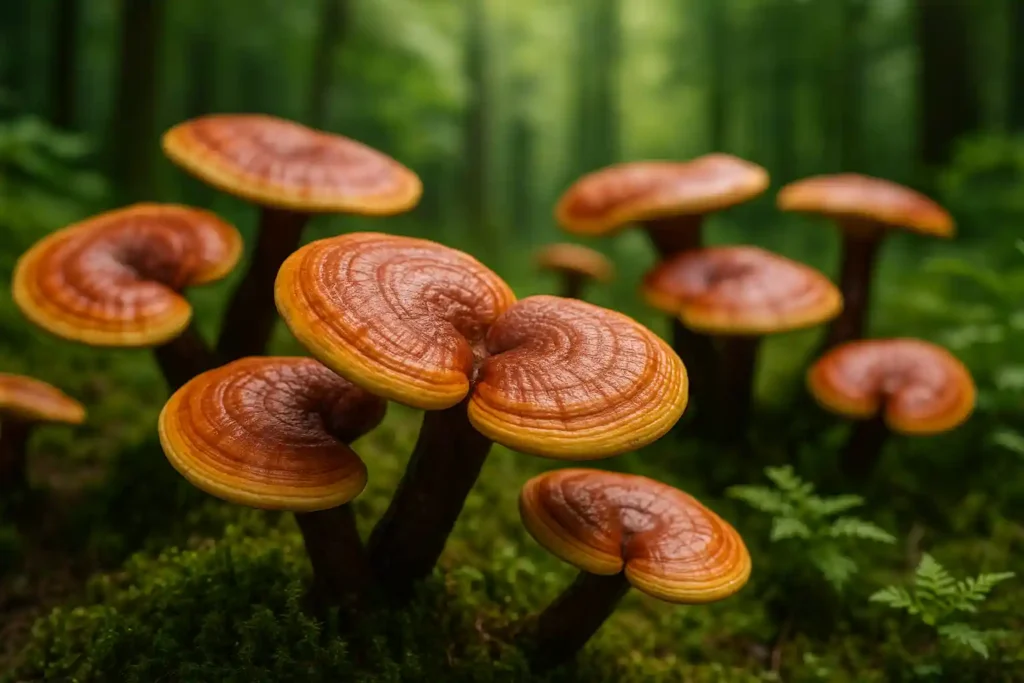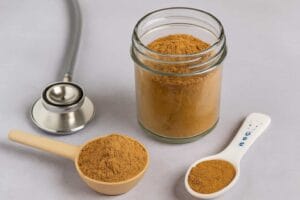In recent years, natural remedies have gained significant attention for their role in supporting conventional cancer treatments. Among these, the Reishi mushroom stands out as a powerful fungus with a long history in traditional medicine. Known for its immune-boosting and anti-inflammatory properties, the Reishi mushroom has been extensively studied for its potential in cancer care. This article explores the science and benefits behind Reishi Mushroom for Fighting Cancer, offering insights into how this ancient remedy could complement modern therapies.
Understanding Reishi Mushroom and Its Historical Significance
Reishi mushroom, scientifically known as Ganoderma lucidum, has been used for over 2,000 years in East Asian medicine. Often called the “mushroom of immortality,” it was revered for its ability to enhance longevity and vitality. Traditionally, Reishi was consumed as a tea or tincture to promote overall wellness and balance within the body.
Today, Reishi is available in various forms, including capsules, powders, and gummies. For those interested in cognitive health, Oxivena offers excellent Lion’s Mane mushroom gummies for cognitive health, showcasing the versatility and growing popularity of medicinal mushrooms.
The Science Behind Reishi Mushroom for Fighting Cancer
Modern research has begun to validate many traditional claims about Reishi mushroom, particularly its role in cancer support. The key compounds responsible for these effects include polysaccharides, triterpenoids, and peptidoglycans. These bioactive components contribute to Reishi’s ability to modulate the immune system and inhibit tumor growth.
Immune System Modulation
One of the most promising aspects of Reishi mushroom is its capacity to enhance immune function. Polysaccharides in Reishi stimulate the activity of natural killer (NK) cells, macrophages, and T-cells—all crucial players in identifying and destroying cancer cells.
Anti-Tumor Effects
Studies have shown that triterpenoids found in Reishi can induce apoptosis (programmed cell death) in cancer cells, preventing their proliferation. Additionally, these compounds inhibit angiogenesis, the process by which tumors develop new blood vessels to sustain their growth.
Anti-Inflammatory and Antioxidant Properties
Chronic inflammation is a known contributor to cancer progression. Reishi mushroom’s anti-inflammatory effects help reduce this risk, while its antioxidants combat oxidative stress, which can damage DNA and lead to mutations.
How to Incorporate Reishi Mushroom into Your Wellness Routine
When considering Reishi mushroom for fighting cancer, it’s important to choose high-quality products and consult healthcare professionals. Reishi supplements come in various forms, including extracts, powders, teas, and gummies. For those managing stress alongside health challenges, you might find the best mushroom gummies for stress relief a convenient and enjoyable option.
Below is a comparison table of common Reishi mushroom supplement forms:
| Supplement Form | Pros | Cons | Recommended Use |
|---|---|---|---|
| Powder | Versatile, can be added to drinks or recipes | Earthy taste may be unpleasant for some | Daily wellness and immune support |
| Capsules | Convenient, pre-measured doses | May contain fillers or additives | Consistent dosage for targeted therapy |
| Tea | Traditional method, soothing | Long preparation time, taste can be bitter | Relaxation and mild immune boost |
| Gummies | Tasty, easy to consume | May contain sugars or preservatives | Daily supplementation, especially for those sensitive to taste |
Reishi Mushroom for Fighting Cancer: Current Research and Clinical Insights
While Reishi mushroom shows great promise, it is important to recognize that it is not a standalone cure for cancer. Instead, it serves as a complementary agent that may enhance the effectiveness of conventional treatments like chemotherapy and radiation. Clinical trials have reported that patients using Reishi supplements often experience improved quality of life, reduced side effects, and strengthened immunity.
For instance, a 2015 study published in the International Journal of Medicinal Mushrooms found that Reishi extract helped reduce tumor size and improved immune markers in cancer patients. Another trial indicated that Reishi supplementation might alleviate fatigue and nausea associated with chemotherapy.
As research continues, more comprehensive clinical data will clarify optimal dosages, formulations, and patient profiles that benefit most from Reishi mushroom therapy.
Potential Side Effects and Precautions
Although Reishi mushroom is generally considered safe, some individuals may experience mild side effects such as dry mouth, dizziness, or digestive upset. It is crucial to consult a healthcare provider before starting any new supplement, especially for those undergoing cancer treatment or taking medications that could interact with Reishi compounds.
Pregnant or breastfeeding women and individuals with bleeding disorders should exercise caution, as Reishi may affect blood clotting.
Integrating Reishi Mushroom with a Holistic Health Approach
Using Reishi mushroom for fighting cancer is most effective when combined with a balanced diet, regular exercise, and stress management techniques. Medicinal mushrooms, including Reishi, are part of a broader wellness trend that emphasizes natural support for mind and body.
For those interested in overall health benefits from mushrooms, Oxivena provides an excellent resource on the benefits of mushroom gummies for overall health, highlighting how these supplements can fit into daily routines.
Summary of Benefits
- Supports immune system function
- May inhibit cancer cell growth
- Reduces inflammation and oxidative stress
- Improves quality of life during cancer treatment
- Available in convenient supplement forms
F.A.Q
What makes Reishi mushroom effective for fighting cancer?Reishi mushroom contains bioactive compounds like polysaccharides and triterpenoids that enhance immune response, promote cancer cell apoptosis, and reduce inflammation. These properties collectively contribute to its potential effectiveness as a natural adjunct in cancer care.
Can I use Reishi mushroom as a replacement for chemotherapy?No, Reishi mushroom for fighting cancer should not replace conventional treatments such as chemotherapy or radiation. Instead, it is best used as a complementary therapy under medical supervision to support overall health and treatment outcomes.
Are there any side effects associated with Reishi mushroom supplements?Most people tolerate Reishi well, but some may experience mild side effects like dry mouth, dizziness, or stomach upset. It’s important to consult your healthcare provider before starting Reishi, especially if you have underlying health conditions or are on medication.
How do I choose the right Reishi mushroom product?Look for supplements that provide standardized extracts with verified amounts of active compounds. Quality certifications and third-party testing can ensure purity and potency. For a convenient option, mushroom gummies are popular, but be mindful of added sugars. You can learn more about the benefits of mushroom gummies for overall health to help guide your choice.
Is there scientific evidence supporting the use of Reishi mushroom for fighting cancer?Yes, numerous studies have explored the anticancer properties of Reishi mushroom. For a detailed overview of this research, you can visit Healthline’s comprehensive article on Reishi mushroom benefits, which summarizes current findings on its role in immune support and cancer care.



